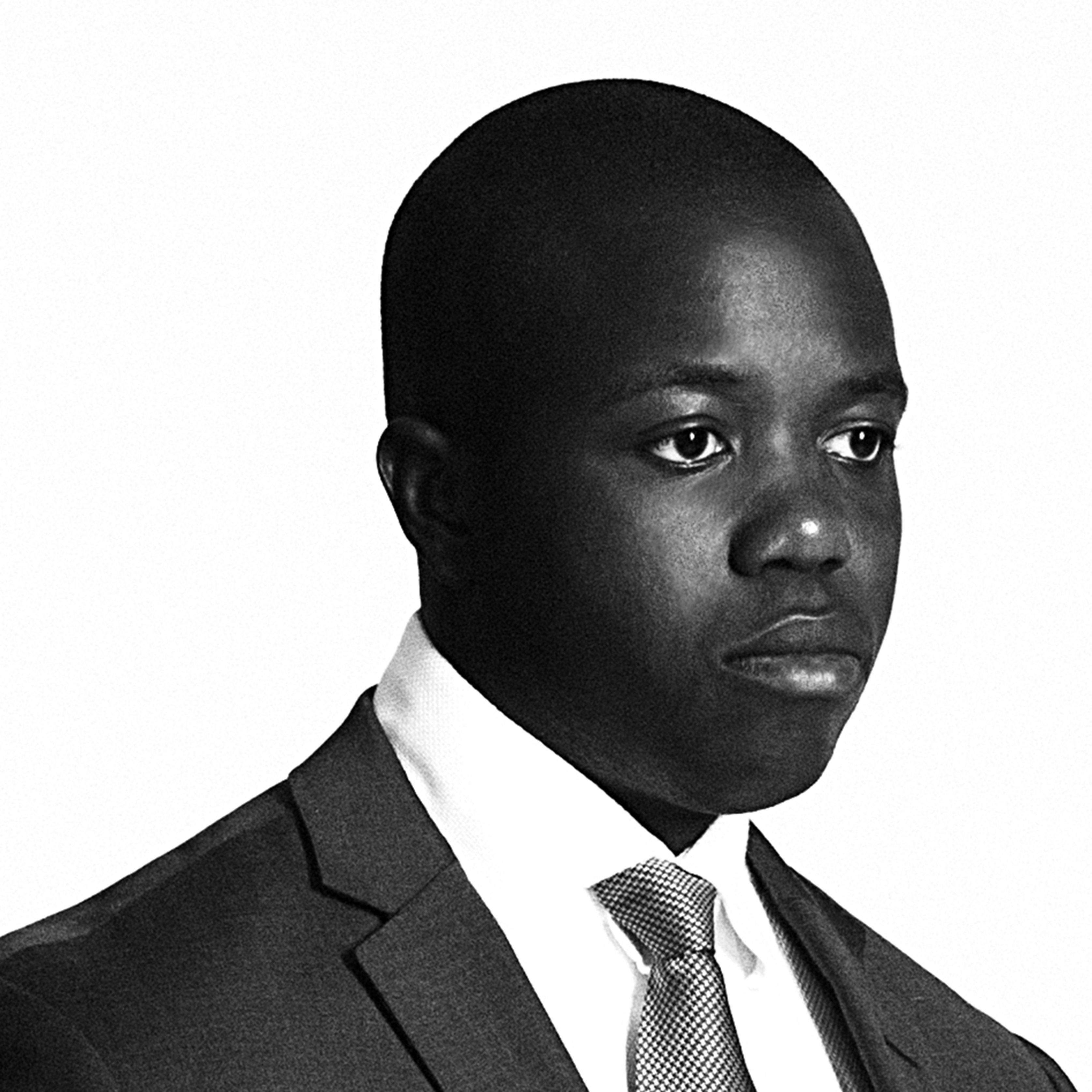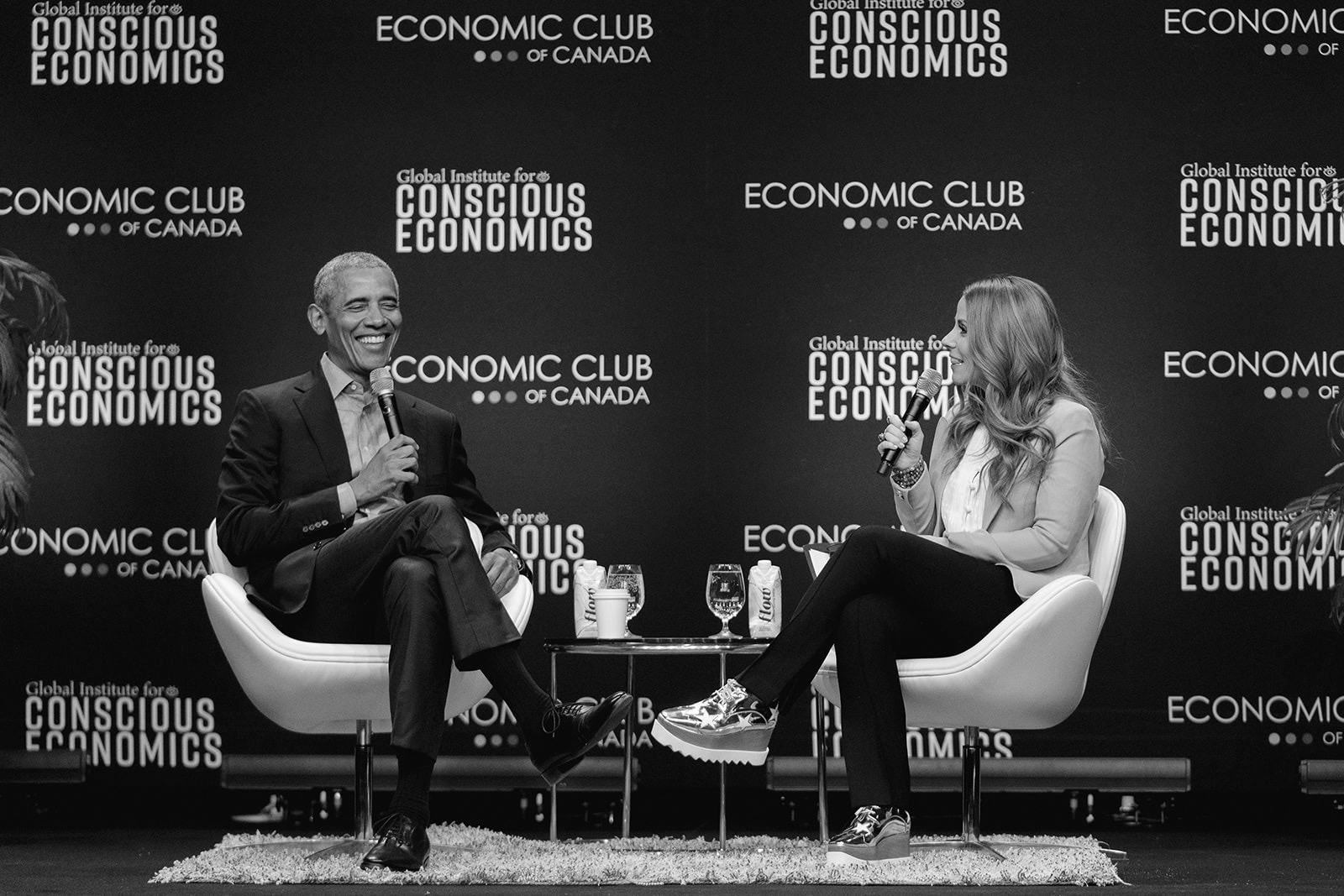This interview has been lightly edited for clarity, two of the photos featured herein are courtesy of Rhiannon Rosalind, and all other photos are by Ajani Charles.
Ajani Charles: What do the words mindfulness and consciousness mean to you?
Rhiannon Rosalind: Consciousness is about awareness, it’s about upgrading levels of awareness of yourself and of your surroundings. And mindfulness, to me, is putting consciousness into practice. So, consciousness is the result and mindfulness is the practice.
Mindfulness is the practice of quieting your mind and being able to be in the present moment and experience what is all around you. And when we quiet ourselves and we come into presence, and we stop the endless chatter of our mind, we’re able to expand our consciousness, we’re able to tap into other parts of ourselves that we don’t always get to experience.
Ajani Charles: That’s great. How has mindfulness helped you throughout your life? And what was your life like before you began practicing mindfulness?
Rhiannon Rosalind: Mindfulness is a tool that helped me overcome addiction.
I struggled for many, many years with anxiety and stress, and I’ve been very vocal about my issues with alcohol. And when I had my great awakening, where I realized that I needed to make some real changes in my life, mindfulness was the tool that I used, and I think for so many of us, we don’t realize that the endless chatter that’s going on inside of our minds is usually quite negative. And it influences the way that we present ourselves in the world and the interactions that we have with other people.
And when I was actually able to start to pay attention to what I was saying to myself, once I got a hold of that, I was able to start to try and transition that, and to try and understand why was I was in such a place — a place where I was being so critical and so hard on myself all the time.
I was able to find moments of true silence and just stopping so that I could reconnect with my essence, and that has helped me in so many ways. It has transformed the way that I show up to work, it has transformed my relationships with my children, my family, and most importantly, myself.
It’s now a part of my daily practice, and not just on the meditation cushion, but I try to bring myself into my body and quiet my mind and just experience what I’m doing, whether I’m driving in the car or whether I’m eating something at dinner. It’s about really focusing on what I’m doing as opposed to living in the past or living in the future, in my mind chatter.
Ajani Charles: That is highly-relatable. How have you gone about cultivating mindfulness in your life and in your businesses?
Rhiannon Rosalind: So, I first started by downloading an app. It told me that if I spent three minutes a day it was going to teach me how to meditate. And I could afford three minutes at the time, so I skeptically downloaded it and thought, “What’s the harm? It’s not such a huge investment.”
I had no idea, the kind of transformation that it would lead me to through three minutes, I started to diligently do my three minutes and slowly but surely I worked my way up to five and ten, and now depending on the time that I have, I could, if I desire, sit in meditation for an hour. And I never ever thought I could be somebody to do that, but we all have this ability.
And it really is just a practice, and this practice has led me to discover parts of myself that I was not aware of — things that were driving me and compelling me to do certain things. So, a perfect example; on top of my issues with alcohol, I also had an issue of numbing my feelings with eating. So what I would do is, I’d be really regimented and strict with myself during the week with working out and eating healthy, and then the weekend would come and I’d completely binge, and this was my way of putting all of my stress and all of the emotion that I didn’t have time to deal with in my busy schedule, and just kind of shoving it all down. And that doesn’t really last. The food is only there for so long, you only get a little bit of quiet for so long as you’re consuming, and then that feeling is back.
Through my practice of mindfulness and of connecting to myself and learning what is motivating me to do these behaviors that are unpleasant or that I don’t want to be doing, I started to realize that I’m not the only one suffering from these things but we all in some way are suffering from this inability to know how to process our emotions, to know how to connect with ourselves, to connect truly and authentically with each other.
I always say that where you have your awakening or where you tap into this greater understanding of life and of yourself, where you find yourself, is where you need to apply it, and where I found myself was running the Economic Club of Canada.
I decided to launch Conscious Economics because I wanted to be able to bring this theory and practice of self-awareness and mindfulness into the space of business, and actually see if those tools could not just help individuals transform their lives, but how businesses transform and help business leaders transform, and young people transform.
We started “Mindfulness & Money” after I had been doing financial literacy training with young people for almost a decade. But when I started “Mindfulness & Money”, it was me taking the very valuable tools that I had learned through my own process and journey and applying that to what I was teaching already.
So, knowing what I know now, past traumas drove me to make poor financial decisions in the past, because that’s another beautiful numbing agent.
It’s always looking for something outside of ourselves, rather than going within ourselves to find the answers, to find the peace, to find the solutions, to find the love that we’re looking for.
I figured that for all the young people that we’re trying to teach about saving and investing, that’s not really what’s driving us underneath at all. What often drives us is that pain, that inability to know oneself.
And when you combine those two things, finances and mindfulness, I think it’s really powerful. And it’s led me to think about my entire career in a different way.
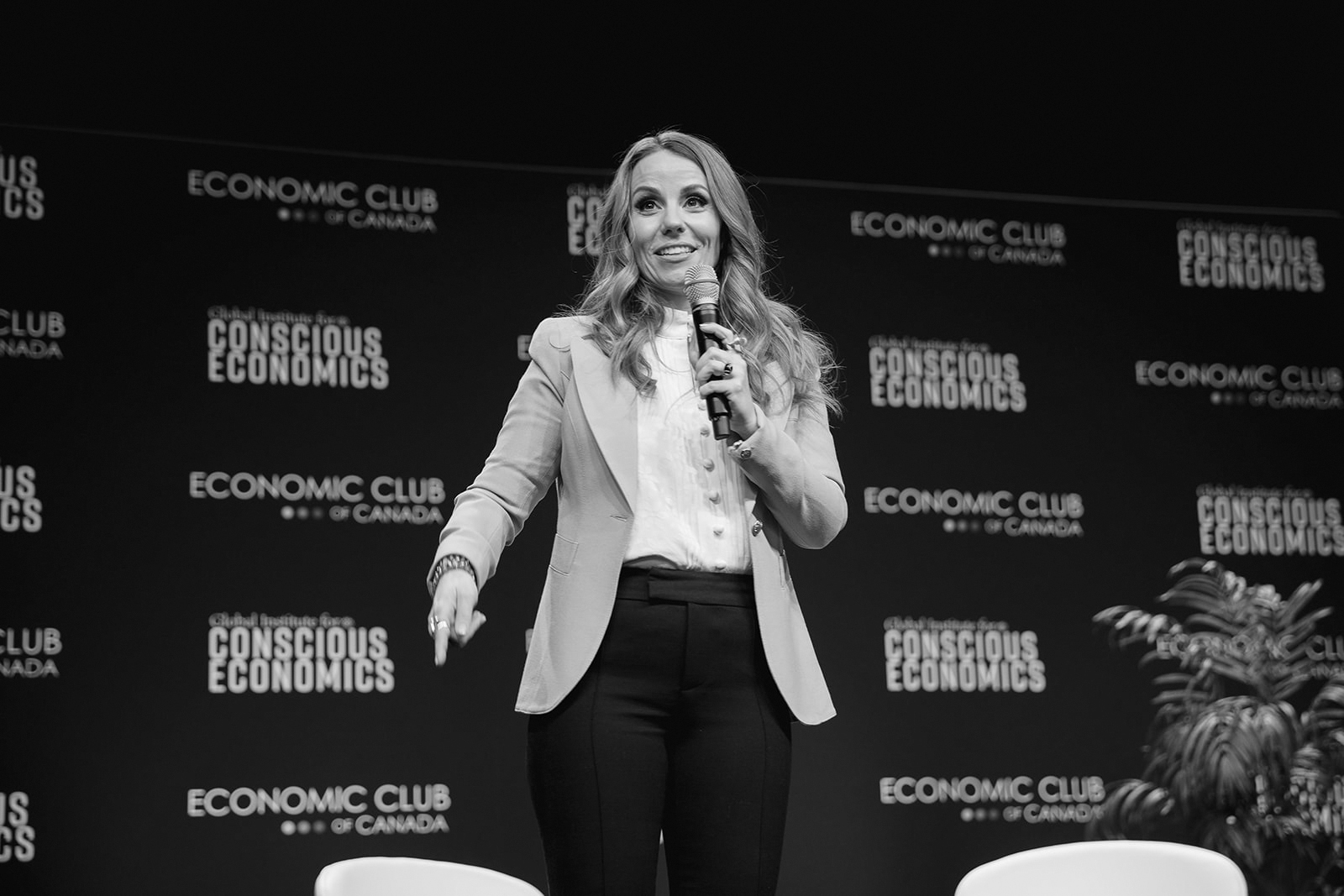
Ajani Charles: Very interesting. When you lacked mindfulness, did you find that you were more all or nothing in your thinking?
Rhiannon Rosalind: I still struggle with all or nothing thinking, if I’m really honest, but I was absolutely extreme with all or nothing thinking for many, many years.
Mindfulness has brought a different level of emotional maturity into my life where instead of being so reactionary, I can, with practice, sit in the observer position and watch myself.
In the beginning, it was about watching myself repeat the cycle and the pattern. So, something triggers me, I have this particular reaction. And once I saw that was happening on the regular, I realized it was just a pattern, it was just a program that I was running, and that through practice I could change that response. I could change that behavior. If I was able to cultivate that awareness, that consciousness, that mindfulness around it.
So, it’s been interesting to see how it transforms you. I can’t say that it’s always perfect. There are some programs that are deeply, deeply ingrained. I think they say the longer that you’ve been doing something, the harder it is to rework. For certain things, I’m still working on getting better, but I’ve seen a huge improvement.
Ajani Charles: Based on some of the stories that you have shared in the past, it seems like everything after being alive is a major bonus.
Rhiannon Rosalind: The most special thing about life is that just being alive is our purpose. Just getting through this and being able to find the joy and the beauty in the pain is the purpose. And that’s when we understand that we stop feeling this need to do so much, and start just allowing ourselves to be a little more. And that’s where the joy is.
Ajani Charles: Certain physiological states bring me back to what some psychotherapists call a child-like ego state. So, that’s when you’re triggered and it’s really difficult to get out of that triggered state.
What type of events can put you in that state? And how do you either get out of it or show yourself compassion, after the fact?
Rhiannon Rosalind: So, I’ve done a lot of inner child work and I do a lot of work with different ages of myself. And one of the things that my inner child gets quite upset about is anything around abandonment. I suffered a lot of different types of abandonment growing up, so I particularly get triggered if an employee is leaving to move on to another position, for example.
It’s not that I will have an external reaction to them, but internally, I will go into a really deep spiral of self-blame and thinking that it’s something that I did, and that little inner child gets very, very triggered, and I’ve sent myself into really dark spirals of depression over things like that.
And I never really realized what the core trauma and what it was related to until later in life. My father left my family when I was just a little infant and I always heard stories of that growing up, and as a child, you internalize that, as if it has something to do with you. You were born then he left, so I internalized that I had challenges with other family members, my mother being kind of in and out of my life as well, so when people leave, even if it’s for their own success, it can trigger that.
For me, it’s coming back to soothing that part of myself, knowing that it’s not about the person that’s in front of me that’s leaving to move on to an opportunity or to go back to school, that it’s really about soothing that part of myself that’s still healing from the things that have happened in the past, and then calling on the current version of myself, with all my maturity and all of my tools, and being able to realize that this is not personal.
And then I can release myself from feeling these feelings of unworthiness or sadness, but it’s a whole process, and I’m sure you know, it sounds like you’ve been doing the work as well, and it’s ongoing.
Instead of trying to avoid those triggers or trying to use other things to escape that feeling now, I know that those triggers are the most beautiful gift because they show me where I still have some work to do. And they allow me to pinpoint exactly what it is that I need to heal, and it’s a beautiful roadmap if we allow it to be.
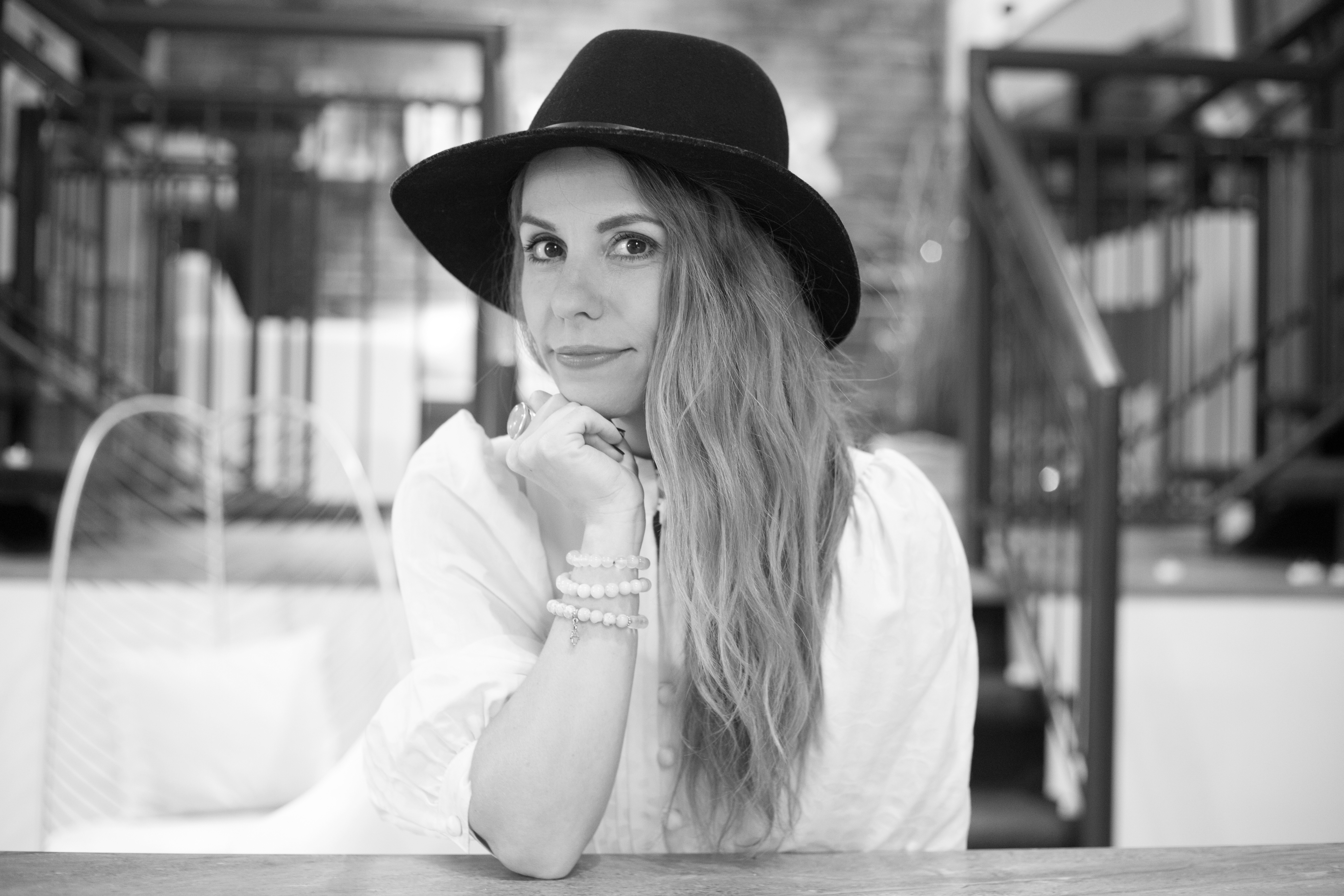
Ajani Charles: I think that you’ve developed a lot of metacognition through the healing that you’ve been doing and through some of your other experiences. As you know, metacognition is basically the ability to think about thinking, like “Why was I triggered when my employee said that she’s moving to another city to work at a different company?”
How many people, how many entrepreneurs are in the same position that you’re in, and have the same trigger but never ask themselves that question? They just react and feel unworthy and go with it because of some of the things we’re talking about.
I truly believe that most adults are only adults physically, and for the most part, most adults are driven by their wounded inner child, which is unfortunate, because that can obviously take you to some pretty unpleasant places.
Rhiannon Rosalind: Oh my goodness, and you see it all the time. And then we look at all of the issues in our society, whether it be around our economy or education system. We’re not teaching our young people to work with that inner child.
And it doesn’t have to be serious trauma, like some of the things that I’ve put out there, it could be as simple as a name being called in the schoolyard or a day that you just felt really sick and your mom didn’t show up to come to get you. I mean, it’s all these little things that we internalize, and then when those things are really triggered in us we have those reactions.
So, what I’m so passionate about is this: imagine every CEO and business leader and every educator did their own inner child work so that they could teach and lead from that place. That’s conscious economics, and it’s so exciting to think that that could be the future and could be possible, and I think we are heading that way.
Ajani Charles: That’s an ideal place to be, but I believe that a lot of people have so many ego defenses and fears about going there. Some leaders simply won’t do the work. It just may be too frightening for them.
But for those that do, they’ll benefit their organizations and the world in some pretty profound ways.
How has the pandemic affected you and your businesses?
Rhiannon Rosalind: The pandemic has had a massive impact on my businesses, because my organizations are all based around live events and live gatherings, and have been for a decade.
So, we lost 100% of our revenue generation ability. In the beginning, for me personally, doing all of this work, it’s an ongoing process and I realized that I was using work to avoid or detach from some of my own feelings. Just being very, very busy all the time and having a lot of roles and responsibilities, and of course, being a leader. It can be a part of your identity and an escape.
When that’s taken away and you’re no longer in front of large crowds a couple of times a week and you’re no longer busy running multiple events, lots can come up to the surface. So, at the beginning of the pandemic for me, because I know myself well enough, it was straight to my yoga mat, straight to my meditation cushion, doing my inner child programming, doing shadow work, really sitting with what was coming up for me, and being able to unpack that.
These are the things that we have to do and it’s been a beautiful unfolding very challenging and difficult, and also beautiful.
Ajani Charles: I can totally relate to your experiences with workaholism. Are you familiar with the term spiritual bypass?
Rhiannon Rosalind: Yes, totally.
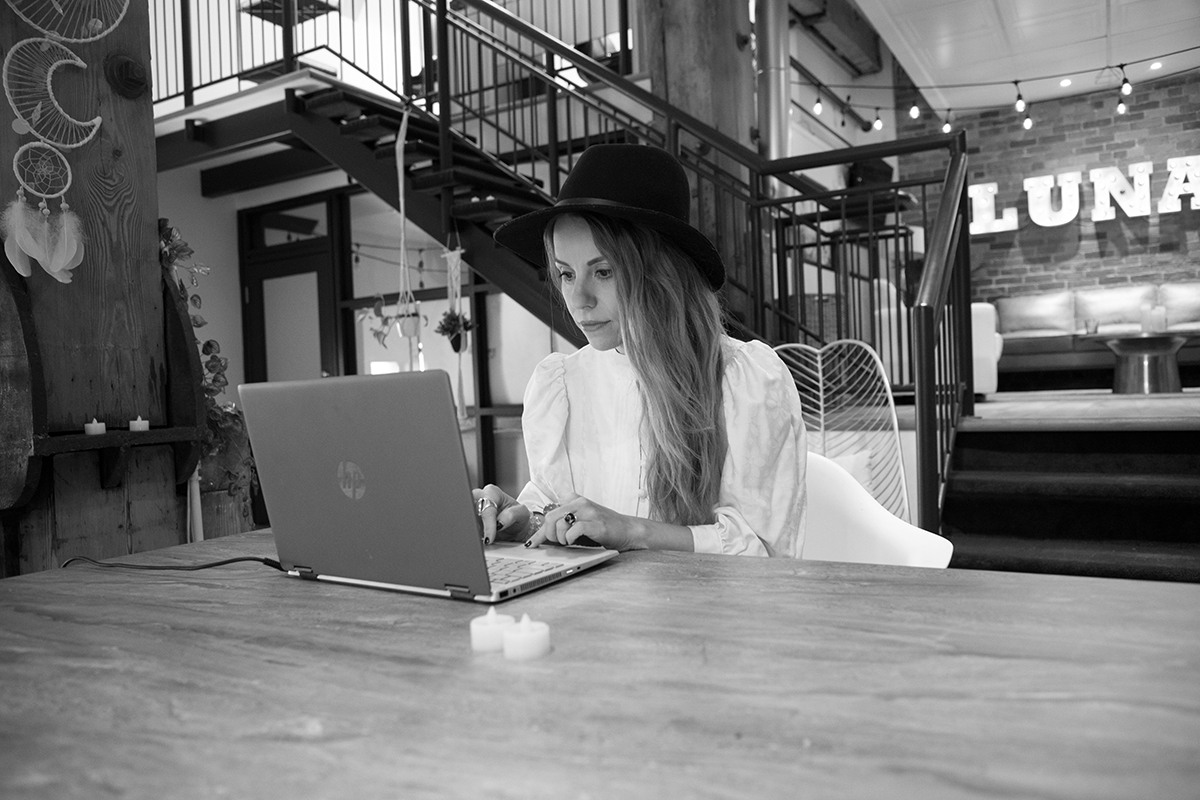
Ajani Charles: That is one of the most challenging things for me to detach from. Not only is workaholism numbing, but you also get a pat on the back for engaging in it. So then, you get social reinforcement for a maladaptive set of behaviors.
I get in these patterns and then I’ll do the type of work that we’re talking about; yoga, meditation, and so on, but then I’ll do them to an extreme degree, and then they’ll paradoxically become numbing, and then I get into spiritual bypass where I’m avoiding the situations that will actually help me the most, but through seemingly healthy activities, by engaging in these spiritual practices in maladaptive ways. So, after I do that, I realize how tricky the human mind is.
Rhiannon Rosalind: Well, that’s the thing; I think we always have to keep catching ourselves. And there’s the neuroscience to prove it; we often go into an automatic response mode, where if we’ve done a task repetitively, we go into a place where we are not mindful, we sort of just go into an automated kind of response, even with yoga or meditation, if we’re not switching it up sometimes, and if we’re doing the same practice all the time, we can get into that place where we’re doing it but we’re not actually reaping the reward that we started doing it for in the first place.
Spiritual bypass can happen in so many ways. I know, even some of the little tools like crystals or cards or anything that people can get addicted to and feeling like they need in order to feel better or to overcome a challenge when really, we’ve got everything we need.
Naked, standing alone, we’ve got it all within ourselves, but I think it’s always going to be a practice to come back to that and to know that. And I’m guilty of spiritual bypass, just as much as anyone. Sometimes I’m bypassing certain things and particularly those deepest rooted behaviors or deepest rooted triggers.
Ajani Charles: What does the future hold for the Economic Club of Canada and the Global Institute for Conscious Economics?
Rhiannon Rosalind: The Economic Club of Canada has always been a more traditional business platform, a place for people to come and talk about the economy, policy measures that are happening, and so on. And I think that there’s absolutely room for that, and I think that that will continue. But Conscious Economics was a necessity for me to create because I was starting to bleed these conversations into the Economic Club and not everybody was ready for them. So, I felt like I needed to create a separate space, a safe space where people that were business leaders and people that were seekers could come and could talk about mindfulness and consciousness, in respect to business, in respect to policy, in respect to education systems in a way where they were ready to and open to.
I think that there’s room for both, but a lot of people talk about the future of work, and the future of the planet, post-pandemic, what is that going to look like? And I really do see a splintering or splitting off that’s happening right now in the world. There are a group of individuals on the planet that I think want things to go back to “normal” and are looking at how they can get back to the way that it was, and I think there’s another group that realizes that there has to be a new normal now. And it’s not just about we work from home or digitally, we actually have to upgrade our consciousness, upgrade our awareness.
There’s just too much to ignore. There’s too much happening on the planet, whether you look at the degradation of our planet, whether you look at some of the different movements that are happening, groups like Black Lives Matter, or what’s happening with our indigenous population here in Canada, or you can look all around the world, these things are happening.
And again, just as we numb ourselves from the things we don’t want to face individually, we do it as a society as well. I think that there is a moment in time right now for those that want to do the work, not only for themselves but also for the betterment of the planet.
There’s a time that’s calling us right now to take that same program that we’re working on individually, where we look at the triggers and the root of the trauma, and the root of the reaction. And look at that as a collective, for example, what is the root cause of racism? Where did it begin, where does it start? Where does an “us versus them” mentality come from? Where do some of the things that we’re dealing with in terms of mental health in the workplace come from? And where did we learn it, and how can we unlearn it? And what does that look like?
I don’t think we can move as a collective without doing the work individually first, because once we understand how that works, how our system works, then we can understand how we form the collective system, and which programs are social, and which programs are individual.
Ajani Charles: There’s no going back to wherever we were in February or before that, it’s not possible. The only constant is change. There’s just simply no going back, especially in light of something as disruptive as a pandemic.
But how do you share the message that you just shared with me to individuals that are simply not open-minded? What do you do when their cognitive biases and their cultural conditioning are so strong that they don’t want to hear what you have to say? What would you say to them, how would you change the mind of someone like that?
Rhiannon Rosalind: So, for a long time I spent my life only concerned about convincing the people that I thought needed convincing. I spent so much time and energy trying to win over those that were unwinnable. And what I’ve realized now is that life is too short. And that what I can do is, I can live out my truth and my reality, and that those that agree with me will be drawn towards me and those that are not ready won’t. And that’s okay.
And that I, as a leader, have the opportunity to embed this kind of thinking into my practice, into the way that I lead, into the way that I cultivate, and those that want to be a part of it will come and those that don’t won’t, and to be honest with you, the best way to teach somebody what the value proposition is here is to live and show somebody what it looks like, to be honest about where we’ve come from, to be honest about the struggles that we go through.
That’s really what I think, I’m not here to convince anybody that doesn’t want to be convinced. I’m just here to share what my truth is, and for those that are in that vibration, they’ll receive it, and they’re meant to.
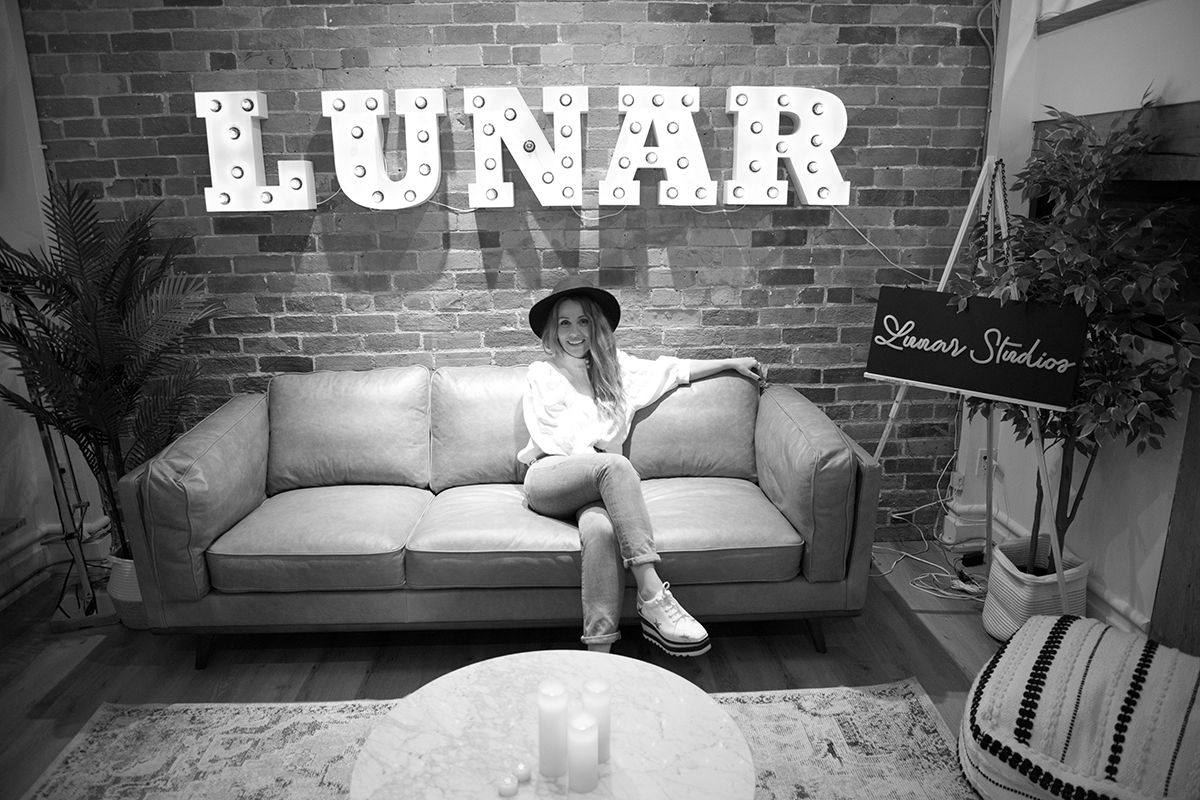
Ajani Charles: I think that’s a wise approach. You can burn a lot of energy trying to sell people that don’t want to be sold.
What are some of the most daunting challenges that you’ve faced throughout your life and what have you learned from them?
Rhiannon Rosalind: I think the biggest challenge that I faced is this feeling of unworthiness, this feeling that I am somehow in some way, not as good as everybody else.
I remember for a long time, because of some of the things that I did out of my own pain and out of the things that I was trying to overcome in my life, growing up in a troubled home, there was violence in my home, and addiction in my home, and all of these different things, and I did a lot of things to numb that pain, and underneath that there was this feeling that I was bad, that I wasn’t a good person, that there was something wrong with me, that I was broken.
I think that’s been the greatest challenge of my life, to be able to do the work to understand what drove those behaviors, and then to have love and compassion for myself in those moments. I’ve done things that I’m not proud of. I’ve told lies, I’ve stolen things from people, I’ve done all sorts of things. And in the end, I can still sit here today and tell you that I love myself. And I love myself enough to be honest about the things that I’ve experienced and the challenges that I’ve overcome. And that I would use those challenges as a foundation to not only change my own life but the way that I interact and lead and work with others.
Again, we never want our darkest skeleton to be let out of the closet, we can spend our whole lives trying to pretend it’s not there, or they’re not there, and you know this fear of anyone ever finding out. And what we do is we prevent people from getting as close to us as they can and we prevent the opportunity to be loved in our fullness.
And I want people to love or want to be around me for all of me. I don’t ever want to feel that there’s going to be something that somebody could find out about me that would erase everything else that they know of me.
So I’ve been taking this approach, which is quite strange in business settings, where I’ve been fully open and transparent about some of my experiences. And why am I doing that and why is that revolutionary? Because I’m a CEO. So, that is the future. That’s Conscious Economics.
Ajani Charles: I am very familiar with the narrative of the stories from your life that you shared last night, and I think that it would have been uncomfortable for someone who’s not used to divulging that type of information about themselves. I think that some people may have found it intimidating or uncomfortable because they’re simply not used to that type of disclosure, which is absolutely necessary for healing.
In terms of the shame, and the feelings of inferiority, do you think it would have been possible to get to where you’re at today without the shame and the feelings of inferiority? Would it have been possible to get from point A to the present moment without that?
Rhiannon Rosalind: I don’t think so. I think that they’ve been a driving force in my life, I think in many ways that inferiority and that shame are what have driven me to study harder, to learn more, to try things that I wouldn’t have ever tried, whether it be in the name of trying to heal or whether it be in the name of trying to find some other way in order to silence those things.
I’ve done all of the good things that you would hope could come from those things, and I’ve done all the crappy things that lead you to dead ends.
Our society places so much value on materialism and on wealth, and that is the only definition of prosperity that we really connect to, as a society, and I think that for so long, that was what I was looking for.
My mindset was all around I go to school and I try to work and I try to do all of these things so I can be in a different income bracket than what I grew up in because that’s the solution. That means I’ve made it, and finding myself running the Economic Club of Canada and being surrounded by wealth all of the time, not just in way of conversation, but in a way of power and influence and really seeing that and seeing the most successful people in our society, what I realized after chasing that, is that it was a dead-end, it was a trap.
I accumulated wealth, status, and power, and material things did not solve what was so painful inside of me.
Ajani Charles: There are various studies on the correlation between material wealth and wellbeing or happiness. I think some studies say it’s as low as $70,000 American in household income, and other studies say that it’s slightly over $100,000 American in household income, and after that, there’s no more correlation between material wealth and wellbeing.
You could make a billion dollars in revenue and it won’t necessarily make you any more fulfilled. So, there are more components to wellbeing and fulfillment beyond the material. Material wealth is important up until a certain point, but after that, once your basic needs are met, once you’re not hiding from creditors anymore, material wealth stops being important to wellbeing.
With that said, if you could speak to the teenage version of yourself today, what advice would you give her?
Rhiannon Rosalind: I would tell her that it’s okay, that it’s all okay, that the feelings and the emotions and the pain that she’s experiencing is all going to lead to something better. I would tell her to relax. I would tell her not to put so much pressure on herself to make everything better for everybody else all of the time.
I do a lot of work with my teenage self right now, which might sound really strange, but I struggled a lot again with eating, so there were periods in my teenage years that I put on quite a significant amount of weight and I had a lot of shame, especially since our society also places a lot of emphasis on image and on what we look like, and what we project out, and I know so many people, especially women, that take that to many different extremes.
Now when I’m taking care of myself by waking up in the morning and doing exercise because it makes me feel good, I invite her with me, so I think about her, and I do it with her in my mind. And I’m healing those parts of myself that didn’t have someone to show me that, to show me a different way to feel good, to be able to process difficult emotions and hard things. I didn’t have that, that mentor, that person that could show me, so I’m doing that for myself now. And as I do that, I heal that part of myself, and I’m able to maintain a different level of health now, and it’s a really beautiful thing.
People can hear this kind of stuff and they think it’s so strange, but you’re absolutely right; we all have this inner part of us living within us whether we want to admit it or not. And the sooner we admit it, and start to work with it, the faster we see such incredible results in how we feel.
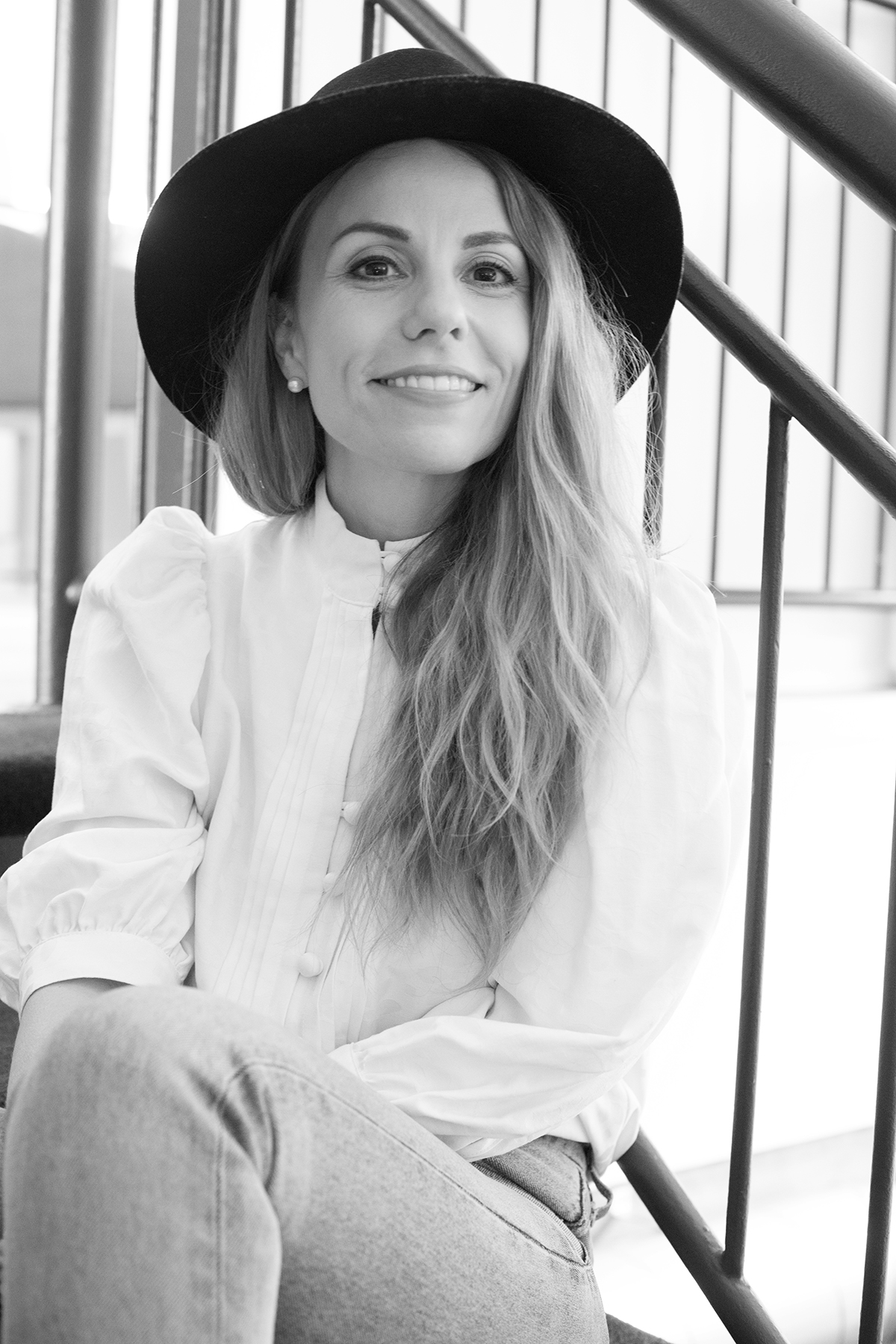
Ajani Charles: Leaving these traumas in what Carl Jung calls the shadow can lead to a lot of terrible things. Based on my experiences, which are subjective, it’s better to bring it out into the light, with the help of others, of course.
I don’t view it as being a Do It Yourself project, and suppressing past traumas, ignoring those feelings of inferiority, not acknowledging fears, it leads to a really dark place.
Rhiannon Rosalind: And we’ve experienced some of those dark places, in our own ways, and I’ve tried all of the things society tells you, that makes you successful and happy, but without actually going into the shadow and going into that trauma.
I never could hold on to those feelings that came from wealth or status or a successful project or a relationship, or whatever it was, I was never able to hold on to those things until I went deep within, and actually started to look at the things that I never wanted to face, and not just from an intellectual perspective, but really through my heart.
And it’s through that process I think that we can come out on the other side, not only for ourselves but for the way in which we look at society, because you as a conscious individual who’s done that work and has cultivated that within yourself, if I present you now with a challenge, I know you’re going to have a different kind of perspective of how you look at that.
And that is what we need to start to cultivate within our education system, and that’s what we need to cultivate within our corporate infrastructure, that is innovation.
Ajani Charles: Awesome. Thank you for taking the time to chat with me.
Rhiannon Rosalind: Thank you.

